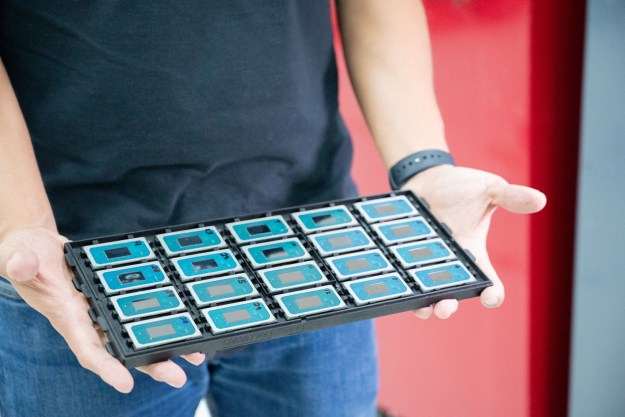
Today is the day that chipmaker Intel formally launches its Core i7, a.ka. "Nehalem"—line of CPUs, at an event in San Francisco. The move formally makes the processors available to the public—and, of course, system manufacturers will be quickly be announcing their new i7 systems to get a jump on the market. The first systems to be launched will be at the high end of the market, targeting gamers, although Core i7 systems should appear shortly for mid-range and multimedia-focused systems.
Originally announced in March 2008—and formally named Core i7 last August—the new processors are specifically designed to improve performance of multithreaded applications like multimedia and games, as compared to the current spate of Core 2 Duo, Core 2 Extreme, and Core 2 Quad processors. The Core i7s will sport between two to eight cores, and require a new motherboard and chipset, since they include support for DDR3-1333 memory right on the chip. The chips feature 8 MB of onboard cache and a new QPI interface that replaces the front-side bus. The Core i7 CPUs are rated to consume a maximum of 130 Watts, while the Core i7 Extreme can pull as much as 150 Watts.
Intel plans to introduce three quad-core Core i7 processors at launch: a 2.6 GHz Core i7-920, the 2.93 GHz Core i7-940, and the 3.2 Ghz Core i7 Extreme 965, priced at $284, $563, and $999 respectively…and those prices are just for the processors when purchased in lots of 1,000 units.
Performance benchmarks for the Core i7 processors have already been published, and general indications are that the Core i7 line offers raw performance improvements between 15 and 20 percent over earlier Core 2 Extreme processors. The benefits of the processor’s hyperthreading technology, however, can’t be seen until applications operate five or more threads; early specs indicate the Core i7 performs well when applications spawn eight or more simultaneous threads.
In the meantime, if you’re wondering what name is dancing through the minds of the hard-core gamers on your list like sugar plums this holiday season, it’s likely "Core i7."
Editors' Recommendations
- Some Intel CPUs lost 9% of their performance almost overnight
- Gamers are reportedly returning Intel Core i9 CPUs in droves
- The only Intel CPU you should buy is over a year old
- Intel just launched the ‘world’s fastest’ CPU
- I compared all of AMD’s V-cache CPUs to see which you should buy


